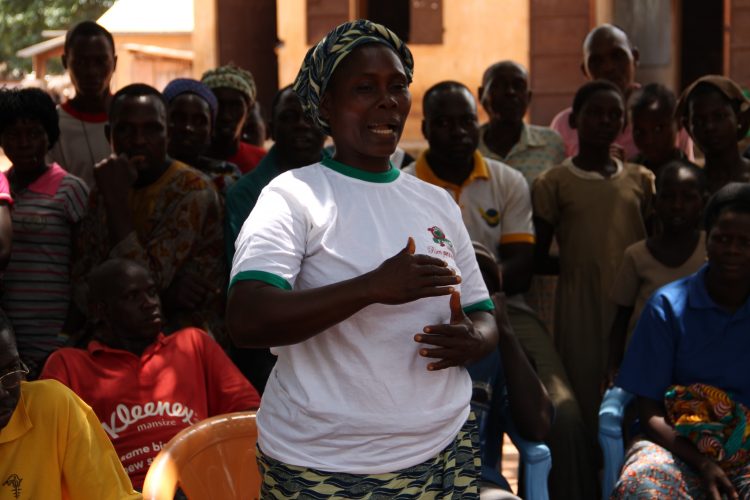FEMALE GENITAL MUTILATION
The Nigerian constitution[11] guarantees the rights of all against torture and other forms of inhuman or degrading treatment.
Despite the constitutional provision, female genital mutilation (FGM) is widespread among various ethnic groups in Nigeria. The common type practiced in Nigeria is called clitoridectomy; this entails the removal of the clitoris and sometimes along with labia majora. It takes place mostly at infancy. Over 57% women were circumcised before the age of one and over 68% by the age of five. (NDHS-1998) In some cases, the operation is performed on the adolescent at the onset of menstruation. The reasons for FGM have been alleged to be the need to curb promiscuity, and secondly that it helps to reduce complications at childbirth.
FGM has been outlawed in four states (Cross Rivers, Delta, Edo and Ogun) and moves are been made in Akwa Ibom and Bayelsa for the passage of laws banning FGM.
Trafficking in women and girls in the last decade trafficking in women and children is assuming an alarming rate in Nigeria. Nigeria has become a source, transit and destination country for both internal and external trafficking. Until recently in 2003 when a new comprehensive law was passed by the Nigerian National assembly and assented to by the President, the provisions of the Criminal and Penal codes did not provide adequately for the crime of trafficking in women and children. Section 34 of the constitution of Nigeria prohibits slavery and torture while Sections 223-225 of the Criminal Code provides for sanctions against whosoever trades in prostitution, facilitate the transport of human being within or outside Nigeria for the purpose of commercial sexual exploitation and make profits for it. The Penal Code also sanctioned this act in Section 278-280, it provides for imprisonment for anyone who buys and sells minors for immoral purposes.
Research has shown that trafficking in women and girls are mainly for the purposes of domestic service and/ or prostitution. In places like Abakaliki, in Ebonyi State, young girls are forced into the sex industry partly because most people believe that they are unlikely to carry the HIV Virus.
Information provided by immigration authorities[12] in Nigeria has also shown that children between the ages of 7-16 are transported to Gabon and Cameroon from various points in the East of Nigeria, there are also reports of trafficking of women and girls to Europe and particularly Italy. The report also shows that over 20,000 Nigeria girls engage in prostitution in Italy and mostly trafficked victims[13]. An unusual dimension introduced to the crime of trafficking which makes the campaign against trafficking difficult is the introduction of the oaths of secrecy which victims and their parents/guardians have to undergo in traditional shrines. These oaths are administered by traditional priests who use the body parts of the victim such as hairs, nails, pubic hair and blood with a sanction not to divulge the secret of the identity of the traffickers, to hold allegiance to the traffickers and promptly pay the traffickers the debt bondage.[14] Failure to abide by the oath is deemed to have serious repercussion sometimes death or insanity on the victims and their relatives.
Most of the women and girls trafficked to Italy and other parts of Europe are from Edo State of Nigeria. This fact prompted the Edo State Government to pass a law with stiffer penalties against traffickers and their accessories including the traditional priests who administer the Secret Oaths. The Edo State law however criminalizes prostitution. The federal government also passed a national legislation outlawing trafficking in Nigeria which law is more elaborate than the previous provisions of the Criminal and Penal Codes. The new legislation did not however take sufficient consideration for the protection of the victims and witnesses to trafficking. Nigeria has also signed the Protocol to prevent, suppress and punish trafficking in persons especially women and girls but is yet to ratify it.
SHARIA PENAL CODES
Another emerging issue affecting the legal status of women is the introduction of Sharia Penal Code in 2000 by Zamfara State, which was later followed by over ten Northern States in Nigeria. All the states in their different codes extended the application to criminal offences as opposed to personal and civil matters. The implementation of the Sharia Penal Code has been flawed as inadequate to protect the rights of women. Access to justice is seen as been abridged particularly in the Area and Sharia Courts.
Often times, judges attitude and biases affect the type of judgment they render with women testimony devalued and treated as that of a minor, without necessary legal capacity. The extension of the law from personal to the criminal sphere as revealed in notorious cases decided by the Sharia trial courts in respect of adultery or fornication (Zina), especially, in the cases of Bariya, Safiya, Amina and others raises a lot of question on the commitment of the Nigerian state to the protection of women’s rights. In all these cases mentioned, the procedural guarantees were not observed in favor of accused person, thereby resulting in violation of basic human rights and often time expose women to violence.
Adultery attracts the death sentence by stoning while fornication attracts a minimum of 100 lashes. The law gives room for gender disparity women who are raped and or are pregnant are being condemned to death by stoning. It places restrictions on the rights of the woman and the child. There is the need for a review so that the law will be in accordance with the international norms and standards of human rights and with the constitutional provision.
Strategies and way forward
Nigeria is a party to the International Covenant on Civil and Political Rights, International Covenant on Economic, Social and Cultural Rights (ICESR). The Convention on the Rights of the Child (CRC), the Convention on the Elimination of All Forms of Discrimination Against Women (CEDAW) and the African Charter for Human and People’s Rights. These international treaties are yet to be incorporated into the domestic laws. An overview of the current socio-political and legal situation in Nigeria shows that the Government has not performed its obligation by the domestication of these treaties. Hence, one of the major steps that should be taken is the incorporation of the CRC and CEDAW in Nigerian domestic law. The reluctance of the government in this regard has to a large extent hampered the full enjoyment of women and girls of their internationally recognized rights.
As noted earlier, Nigeria practices a multiple system of law, however in the event of any conflicts, the constitution should be supreme[15] and upheld in favour of the protection of women where the customary and Sharia laws are discriminatory and unjust.
Chapter II of the constitution on fundamental objectives and directive principles of state policy contains principles that should assist and guide Nigeria in the formulation and execution of policies, which would have in part, assisted to further strengthen the promotion of women and girl rights. However, this chapter of the constitution that is most beneficial to women is not enforceable in courts. This restriction is stated in Section 6 (6) of the constitution. The tripartite system of laws is also making it difficult to establish adequate and uniform legal framework applicable throughout the country.
The fundamental human rights provisions, which are enforceable in court, (though with some draw backs) are provided for in Chapter IV, Sections 33 – 44 of the 1999 constitutions, these provisions guarantee a wide range of civil rights as contained in the International Bills of Rights. It contains the most basic safeguards for civil and political rights of individual citizens. Unfortunately, the constitutional framework in Nigeria is defective. While one set of constitutional provisions promotes rights and allows for the enforcements of these rights, the other restricts its application, hence making the laws not justice-able. In effect when the state fails to protect its citizens by either preventing or punishing various kinds of human rights abuses, it can be said to be perpetrating or condoning those forms of violence. It is important to note that while making this dichotomy, the international perspective of states obligation to protect its citizens make the State culpable even in situations mentioned above.



